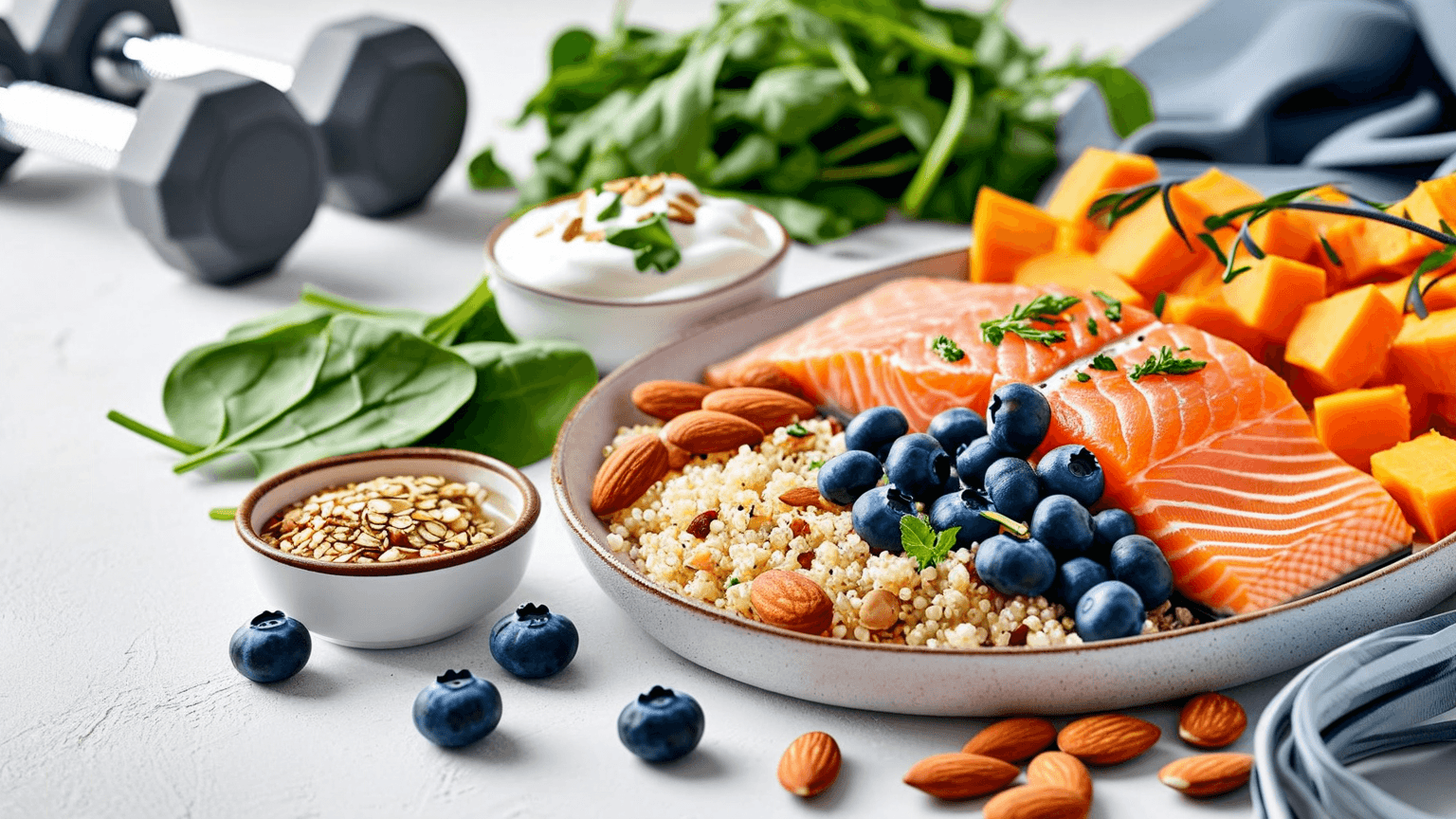What if the foods you think are healthy are actually sabotaging your energy levels and athletic performance? Most people unknowingly consume heavily refined alternatives daily, believing they're making smart nutritional choices. These processed imposters strip away essential nutrients while flooding your system with inflammatory compounds that drain your vitality and slow recovery.
The modern food industry has mastered the art of creating heavily refined alternatives that look, taste, and market themselves as wholesome options. From protein bars loaded with artificial sweeteners to "natural" energy drinks packed with synthetic vitamins, these products promise convenience while delivering nutritional disappointment. Understanding how to identify and replace these refined alternatives becomes crucial for anyone serious about optimizing their health and performance.
Why Heavily Refined Alternatives Sabotage Your Health Goals
Heavily refined alternatives undergo extensive processing that strips away fiber, vitamins, minerals, and beneficial plant compounds. This processing creates foods with altered nutrient profiles that your body struggles to recognize and utilize effectively. The refining process often adds synthetic preservatives, artificial flavors, and chemical stabilizers that can trigger inflammatory responses and disrupt your natural metabolic processes.
Research shows that consuming heavily refined alternatives regularly can lead to blood sugar spikes, increased cravings, and reduced satiety signals. Your body expends more energy trying to process these artificial ingredients, leaving you feeling tired and sluggish. The lack of natural fiber and nutrients means you're consuming empty calories that fail to nourish your cells or support optimal physiological function.
Athletes and active individuals face particular challenges with heavily refined alternatives because these foods often lack the complex carbohydrates, healthy fats, and complete amino acid profiles needed for proper recovery and performance. The synthetic vitamins added to many refined products have lower bioavailability compared to naturally occurring nutrients, meaning your body absorbs and utilizes them less effectively.
Top Power Packed Whole Food Alternatives for Energy and Performance
Replacing heavily refined alternatives with nutrient-dense whole foods can dramatically improve your energy levels and athletic performance. Sweet potatoes provide complex carbohydrates with natural fiber, potassium, and beta-carotene that support sustained energy release. Unlike refined energy bars, sweet potatoes offer steady glucose delivery without the crash associated with processed sugars.
Quinoa serves as an excellent alternative to refined grains, delivering complete protein with all essential amino acids plus fiber, iron, and magnesium. This ancient grain supports muscle recovery while providing sustained energy for training sessions. The natural protein content makes quinoa particularly valuable for athletes seeking plant-based alternatives to heavily processed protein supplements.
Fresh berries offer concentrated antioxidants, natural sugars, and fiber that refined fruit snacks cannot match. Blueberries, strawberries, and blackberries provide anthocyanins and vitamin C that support recovery while satisfying sweet cravings naturally. The fiber content helps regulate blood sugar and promotes feelings of fullness that heavily refined alternatives fail to deliver.
Virgin Olive Oil Benefits That Outperform Refined Cooking Oils
Virgin olive oil represents one of the most powerful alternatives to heavily refined cooking oils like vegetable oil, canola oil, and margarine. Cold-pressed virgin olive oil retains its natural antioxidants, including vitamin E and polyphenols, which provide anti-inflammatory benefits and support cardiovascular health. These compounds get destroyed during the refining process used for conventional cooking oils.
The monounsaturated fats in virgin olive oil support hormone production and nutrient absorption while providing stable energy for athletic performance. Unlike heavily refined oils that undergo chemical processing and bleaching, virgin olive oil maintains its natural flavor profile and nutritional integrity. This makes it ideal for both cooking and finishing dishes while supporting your health goals.
Studies demonstrate that virgin olive oil consumption can improve insulin sensitivity and reduce inflammation markers compared to refined oils. The natural antioxidants help protect against oxidative stress from intense training while supporting recovery processes. Athletes who replace refined oils with virgin olive oil often report improved energy levels and better overall well-being.
Chromium Potato Performance Salad Recipe for Athletic Recovery
Creating a chromium potato performance salad provides an excellent alternative to heavily refined post-workout meals. Start with organic purple potatoes, which contain natural chromium that supports blood sugar regulation and insulin sensitivity. These colorful tubers offer complex carbohydrates for glycogen replenishment plus antioxidants that combat exercise-induced oxidative stress.
Combine diced cooked purple potatoes with fresh spinach leaves, which provide additional chromium along with iron, folate, and nitrates that support oxygen delivery to muscles. Add chopped walnuts for healthy omega-3 fatty acids and protein, plus diced bell peppers for vitamin C and natural sweetness. This combination delivers nutrients that heavily refined recovery drinks cannot match.
Dress the salad with virgin olive oil, fresh lemon juice, and herbs like parsley and oregano for maximum flavor and nutrient density. The healthy fats help absorb fat-soluble vitamins while the herbs provide additional antioxidants. This whole food approach to post-workout nutrition supports recovery more effectively than heavily refined alternatives while satisfying hunger and cravings naturally.
Potential Interactions Precautions When Switching from Refined Foods
Transitioning away from heavily refined alternatives requires understanding potential interactions precautions, especially if you take medications or supplements. Whole foods contain natural compounds that can affect medication absorption and effectiveness. For example, increasing fiber intake dramatically can slow the absorption of certain medications, requiring timing adjustments under medical supervision.
Natural foods rich in vitamin K, like leafy greens, can interact with blood-thinning medications. If you're replacing refined foods with nutrient-dense alternatives, monitor your vitamin K intake and work with healthcare providers to adjust medication dosages appropriately. The increased bioavailability of nutrients from whole foods means your body may absorb and utilize vitamins and minerals more effectively than from refined sources.
Some individuals experience digestive adjustments when switching from heavily refined alternatives to high-fiber whole foods. Start gradually by replacing one refined food per week rather than making dramatic changes overnight. This allows your digestive system to adapt while minimizing potential discomfort. Increase water intake to support the additional fiber and help your body process the increased nutrient load effectively.
Building Your Personal Top Approach to Avoiding Refined Foods
Developing your top approach to avoiding heavily refined alternatives starts with reading ingredient labels carefully. Foods with more than five ingredients or ingredients you cannot pronounce likely contain refined components. Focus on single-ingredient foods like fruits, vegetables, nuts, seeds, and minimally processed grains that retain their natural nutrient profiles.
Plan your meals around whole foods by shopping the perimeter of grocery stores where fresh produce, meats, and dairy products are typically located. The center aisles contain most heavily refined alternatives, so limit your time there and stick to specific whole food items like oats, quinoa, and canned beans without added sugars or preservatives.
Prepare meals at home using simple cooking methods that preserve nutrient content. Steaming, roasting, and sautéing with virgin olive oil maintain the natural benefits of whole foods while creating delicious meals. Batch cooking on weekends helps ensure you have healthy alternatives ready when time is limited, reducing the temptation to choose heavily refined convenience foods.
Measuring Your Progress Beyond the Scale
Tracking improvements from avoiding heavily refined alternatives involves monitoring energy levels, sleep quality, and athletic performance rather than focusing solely on weight changes. Keep a daily journal noting your energy levels throughout the day, workout performance, and recovery time between training sessions. Many people notice increased sustained energy within the first week of eliminating refined foods.
Pay attention to digestive health improvements, including reduced bloating, more regular bowel movements, and decreased food cravings. Whole foods provide the fiber and nutrients needed for optimal gut health, which directly impacts immune function and nutrient absorption. Better digestion often leads to improved skin clarity and reduced inflammation markers.
Monitor your sleep patterns and morning energy levels, as stable blood sugar from whole foods typically improves sleep quality. Many athletes report falling asleep faster and waking up more refreshed when they eliminate heavily refined alternatives. Better sleep directly correlates with improved recovery, hormone balance, and athletic performance.
Conclusion: Your Path to Optimal Nutrition
Eliminating heavily refined alternatives and embracing nutrient-dense whole foods represents one of the most powerful steps you can take for your health and performance. The transition requires patience and planning, but the benefits of increased energy, better recovery, and improved overall well-being make the effort worthwhile. Start with small changes and gradually build momentum as you discover delicious whole food alternatives.
Remember that potential interactions precautions apply when making significant dietary changes, especially if you take medications or have health conditions. Work with healthcare providers to ensure your transition supports your individual needs. Focus on adding nutritious alternatives rather than simply restricting foods, creating a sustainable approach that enhances your quality of life long-term.
Related Topics
Explore more superfood insights and nutrition guidance.



